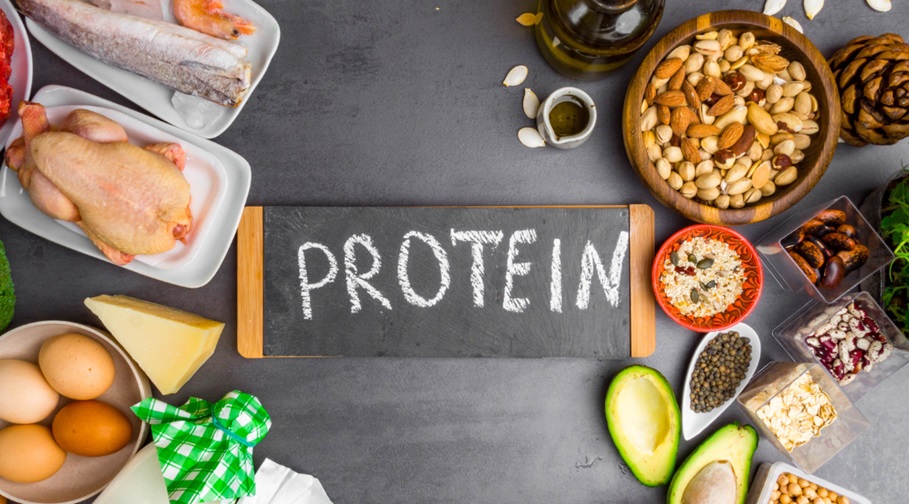In recent years, a high-protein diet has gained widespread popularity for its numerous health benefits, particularly among those aiming to improve fitness and overall well-being. This dietary approach is often embraced for its ability to support muscle growth, promote weight loss, and increase energy levels. However, one important but often overlooked benefit is how it can positively impact heart health. To truly harness the potential of a high-protein diet, it’s essential to explore the best protein sources that not only fuel your body but also support long-term cardiovascular wellness.
Understanding Protein’s Role in the Body
Protein as a Building Block
Proteins are crucial macronutrients, vital for tissue building and repair, enzyme production, and immune system support. They are composed of amino acids, which are the building blocks of muscle, skin, and other bodily structures. Consuming adequate protein is crucial for maintaining muscle mass and supporting metabolic processes.
Protein Sources and Heart Health
While protein is vital, the sources from which it is derived can affect heart health differently. Lean proteins, including fish, chicken, and plant-based alternatives, are frequently recommended for their heart-health benefits. These sources are typically lower in saturated fats and cholesterol compared to red meat, which can contribute to cardiovascular issues when consumed in excess.
The Benefits of Protein on Cardiovascular Health
Weight Management and Heart Disease
A diet rich in protein can assist with weight management, a crucial element in lowering the risk of heart disease. Protein-rich foods can increase satiety, reduce overall calorie intake, and help with weight loss or maintenance. As obesity is a major risk factor for heart disease, managing weight through increased protein consumption can positively influence heart health.
Blood Pressure and Cholesterol Levels
Studies suggest that a diet high in lean protein sources can help lower blood pressure and improve cholesterol levels. Proteins from sources like fish and legumes can increase good HDL cholesterol while decreasing bad LDL cholesterol. This balance is essential for maintaining healthy arteries and preventing heart disease.
Risks and Considerations of a High-Protein Diet
Potential for Increased Saturated Fats
While protein is beneficial, overconsumption of animal-based protein sources can lead to increased intake of saturated fats. This can elevate cholesterol levels and increase the risk of heart disease. It is important to choose lean protein options and incorporate plant-based proteins to mitigate these risks.
Kidney Health and High Protein Intake
High-protein diets can be taxing on the kidneys, particularly for individuals with pre-existing kidney conditions. Excess protein needs to be processed and excreted, which can strain kidney function over time. It is advisable to monitor protein intake and ensure it aligns with individual health needs, potentially seeking guidance from healthcare professionals.
Incorporating Heart-Healthy Protein Sources
Lean and Plant-Based Proteins
To support heart health while following a high-protein diet, focus on incorporating lean protein sources. Fish, chicken, legumes, and tofu are excellent choices that provide necessary nutrients without the added saturated fats. Additionally, products like Horlicks Protein Plus can be considered as they offer a balanced nutritional profile.
Complementing Protein with Other Nutrients
While protein is essential, it should be part of a balanced diet that includes fruits, vegetables, whole grains, and healthy fats. These foods provide antioxidants, fiber, and other nutrients that support cardiovascular health. A holistic approach to nutrition ensures comprehensive benefits for the heart and overall well-being.
Conclusion
A high-protein diet can positively impact heart health by aiding in weight management, improving cholesterol levels, and reducing the risk of heart disease. However, it is crucial to choose the right protein sources and balance them with other heart-healthy foods. By incorporating lean and plant-based proteins, individuals can enjoy the benefits of this diet while supporting their cardiovascular system.
Frequently Asked Questions
1. Can a high protein diet be harmful to the heart?
While a high-protein diet can support heart health, consuming excessive amounts of animal-based proteins high in saturated fats can increase the risk of heart disease. It is important to choose lean and plant-based proteins to avoid potential harm.
2. How does protein affect cholesterol levels?
Protein, especially from lean and plant-based sources, can help improve cholesterol levels by increasing HDL (good) cholesterol and lowering LDL (bad) cholesterol. This balance is beneficial for maintaining healthy arteries.
3. Should individuals with kidney issues follow a high-protein diet?
Those with kidney issues should approach high-protein diets with caution, as excess protein can strain the kidneys. It is advisable to consult a healthcare professional to tailor dietary recommendations to individual health needs.

